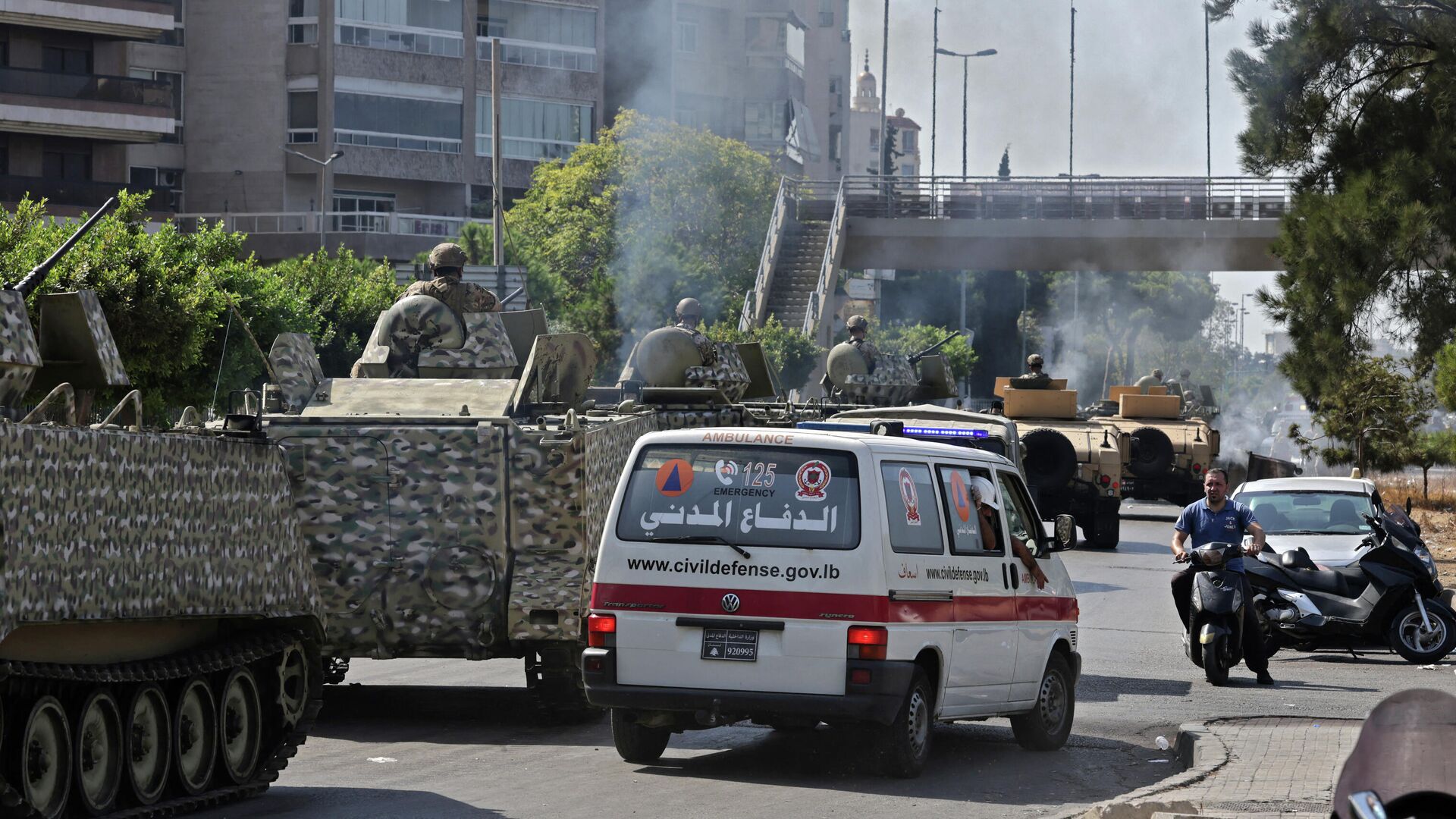Several Dead and Dozens Injured: What Was Behind Thursday's Bloody Events in Lebanon?

© AFP 2023 / JOSEPH EID
Subscribe
The official reason for the shooting was a confrontation between pro-and-anti Hezbollah supporters over the group's alleged involvement in last year's deadly port explosion. But a Beirut-based journalist says the events might be connected to the upcoming elections and the desire of the parties to impart fear among the public.
The shooting has stopped in the Lebanese capital Beirut, where clashes between pro-and-anti Hezbollah supporters erupted on Thursday, resulting in the killing of at least six and the injury of dozens more.
The gunfire broke out during a protest organised by Shia Muslim groups, who rallied against a judge who has been investigating last year's Beirut port explosion, and has been accused of having a bias against Hezbollah.
Elections Season
But Mohammed Kleit, a Beirut-based journalist who covered Thursday's bloody events, says the confrontation had been sparked by something else -- the parliamentary elections set for March 2022.
"We usually witness such armed tensions and clashes before any major event in the country, and the elections this time are going to be a huge deal, considering the fact that there will be great changes in the political strata after the politicians' failure to make any proper change in the past two years."
The political and economic situation in Lebanon have never been stable, but things have only gotten worse following the October 2019 protests, when thousands took to the streets venting anger at the government for introducing a tax on Whatsapp and lifting prices on basic products and fuel.
The eruption of COVID-19 in February 2020 has only exacerbated the situation. Tens of thousands have lost their jobs. Many others have been pushed into poverty.
People's Defenders?
Throughout the years, Hezbollah, a Shiite militia that also controls the Lebanese parliament, has tried to ease the suffering of its people and thus boost its popularity among the general public.
In the past, they have cemented their position as the protectors of Lebanon from Israel. More recently, during the dire economic crisis, they have been supplying the country with fuel shipped from Iran. They have been providing the Lebanese with food and medication from the Islamic Republic, and provided medical treatment to the public during the waves of the coronavirus pandemic.
Now, says Kleit, with the situation escalating, they might be resorting to similar tactics.
"Hezbollah and their allies, the Amal movement, are trying as hard as they can to reassure their supporters that they are their only protectors and saviours, especially after the negative sentiments towards the Shiite-duo during the past two years, where residents of their areas have suffered a lot during the fuel and economic crises," explained the journalist.
"As for the Lebanese forces [that participated in the clashes - ed.], they are trying to show the Christians of Lebanon that they are the protectors of their existence, rhetoric that has been used by the right-wing Christian parties since 1960s," Kleit added.
Just like in the past, during the years of the Civil War of 1975 to 1990, both sides blamed each other for the mess. The ordinary Lebanese are also split. Some throw their support behind Hezbollah. Others blame it for Lebanon’s economic woes, for a number of western sanctions, and now for the sweeping under the rug of their alleged and indirect involvement in the deadly port explosion that killed hundreds of people.
End of Hezbollah?
Many would like to see Hezbollah disarmed. But Kleit says this is hardly possible.
"It runs on a strong and deeply-rooted religious ideology. It has a huge weapons arsenal that has defeated one of the strongest armies in the Middle East [Israel] and has assisted to defeat one of the most brutal terrorist groups in recent history [Daesh] in Syria and Eastern Lebanon. So it will be extremely difficult for any armed militia to win a battle against experienced fighters like Hezbollah".
If this is the case, sectarian fights in Lebanon are likely to continue too, and looking at the situation, the journalist says he is pessimistic about the future.
"Elections are getting nearer and the political parties have opened the electoral season with blood, as always. Considering the parties’ seats in parliament might be at stake for their respective rivals or even the civil society that rose out of the 2019 uprising, they might trigger more rounds of fights to impose fear amongst the public".


